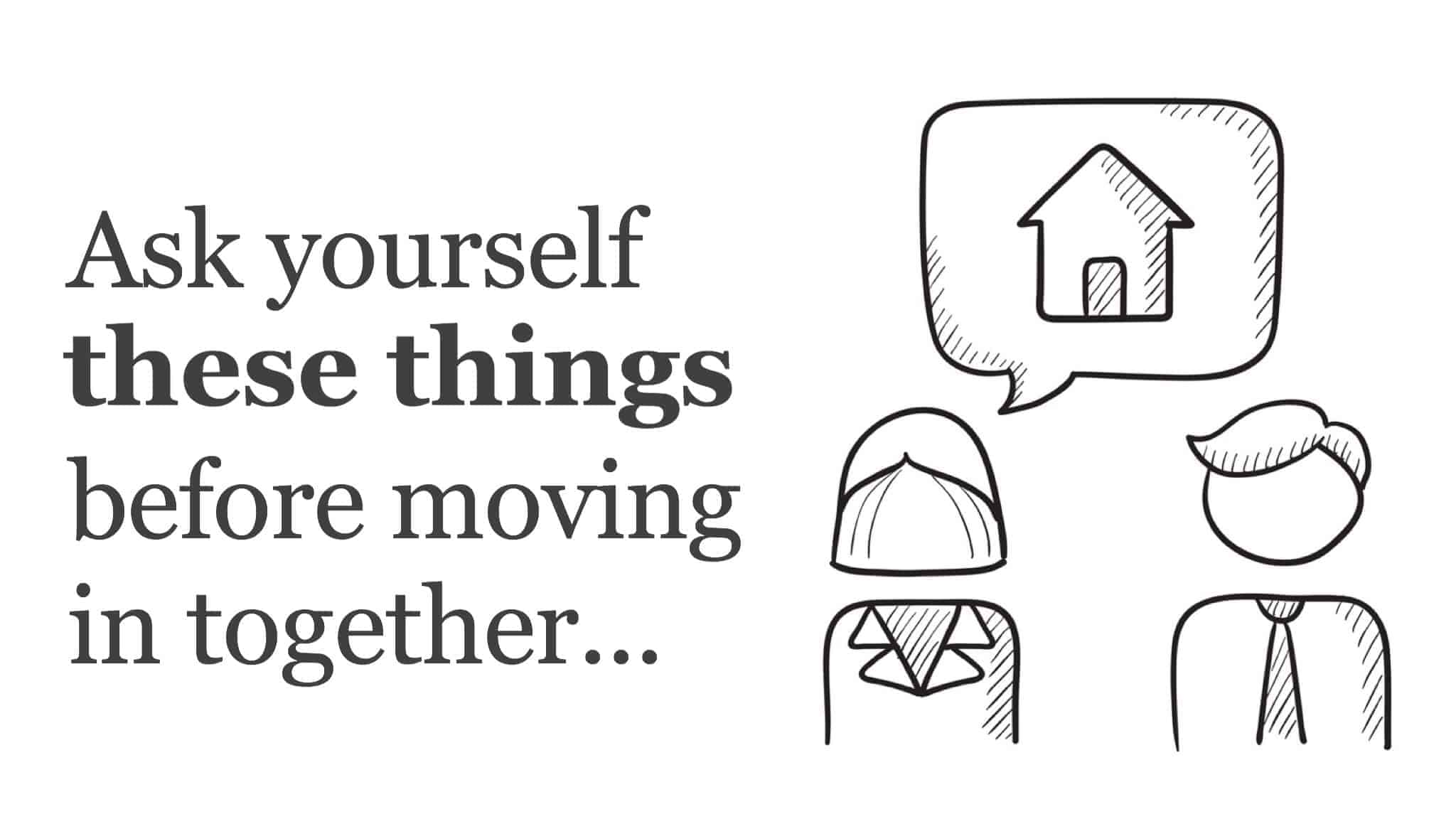There is a fine (yet distinct) difference between dating someone and living with your partner.
Sure, the dating phase may have been terrific. Sure, you love the person that’s come to embrace who you are, and reciprocated such feelings. If so, that is wonderful.
BUT…
Living together – as in sharing an abode – carries an additional set of responsibilities that dating doesn’t. Make no mistake: personal compatibility and cohabitation are two different animals.
Cohabitation requires a different type of compatibility.
Hence, the reason for this article.
From the first date to a wedding date, love has an arguably beautiful way of negating the boring-but-necessary “practicality” thing. Not everyone you’re attracted to is conductive to your (real or perceived) way of life – or your future.
Are we saying that a couple in love cannot overcome perceived flaws? NO! Can compromise and understanding “narrow the gap” in many areas, including cohabitation? YES!
Please take a second and understand the last statements. As deeply flawed human beings, many people have found a sense of purpose and destiny through the love of a woman. It IS possible.)
The difference: there must be a mutual – at least, to some degree – understanding between you and the person who you love in terms of living conditions. Failure to reach such mutuality leads to conflict;, tension, leading to communication breakdowns, leading to relationship problems…you see where this is going.
“Alone we can do so little, together we can do so much.” – Helen Keller
Are You Ready to Live With Your Partner?
Here are five important things to consider before renting that awesome apartment, condo, or house:
#1 Are you ready to “play house?”
One’s age and maturity level are a potential deal-breaker when living with someone else. Another “x-factor”: is personality; not the one you see, but the “private” persona.
Some young couples fall in love, move in together, and things work out great. For others, renting a place together with the “ex-someone” ranks among their worst decisions.
The former group tends to have an open, effective line of communication, the setting of expectations and responsibilities, and a high level of commitment. For the latter folks, well, one or both partners lacked something.
#2 Are finances the main priority?
Money is important, yes, but not nearly as important as living compatibility. While it may be ultra-tempting to “split the rent” (and it’s tempting), it won’t matter if you have to pay hundreds of dollars to terminate a lease preemptively.
Carefully consider if the almighty dollar (or pound, Euro, other currency) is/is not skewing your decision-making. Of course, you must discover the similar motivations of your partner.
#3 Is your partner (ahem) untidy?
Don’t underemphasize the importance of cleanliness standards (or lack thereof). Odds are you’ve visited your guys/gals living quarters once or twice…so, what was your impression?
Perhaps the more important question: how much or little similarity did said living quarters resemble yours? If your space exhibits the cleanliness of a hospital operating room, you’re going to have a difficult time accepting anything less.
If you both tend to be untidy folk, congrats.
#4 Are you a loner or a partier?
And is your partner a loner or a partier? We all know that opposite personalities often attract. But again, attraction and cohabitation bear no relation whatsoever.
So if you’re an introvert that’d rather go on a Friday night Netflix binge, and your partner is an extra-extravert that’s ready to B-line to the nearest nightclub, you may have a problem.
Of course, two reasonable people with differing personalities and a mature mindset can compromise and accommodate. The problem lies when one or both people are unwilling to adhere to such over the long-term.
#5 Have you looked at this decision objectively?
Admittedly, this last question can be a bit perplexing. But have you given careful consideration to why you’re moving in together?
Is it because you both truly love one another, or is it an impulse thing?
We’re not discounting the importance of emotions – they are necessary to any fruitful partnership. However, having a “good feeling about this” is not (or shouldn’t be) the preferred benchmark here.
Consider the questions above carefully before jumping headfirst into a living situation that may not work out. Research other things to consider when moving in with your partner. And think objectively.
If you’re still unsure, go for the lease offering the shortest duration (yes, even if said lease eliminates the well-advertised, long-term “perks”!)
Final Thoughts on Moving in With Your Partner
Research (surprise!) differs on the benefits and drawbacks of cohabitation. The preponderance of pre-2000 research apparently links pre-marriage cohabitation with higher divorce rates.
The good news, for all of you duos eagerly seeking a lease (and a marriage?) is that prior research may have drastically overestimated the relationship between living together, breakups, and divorce.
Arielle Kuperberg, an assistant professor of sociology at the University of North Carolina-Greensboro, states:
“It turns out that cohabitation doesn’t cause divorce and probably never did,” says the experienced sociologist and researcher, “What leads to divorce is when people move in with someone…before they have the maturity and experience to choose compatible partners and to conduct themselves in ways that can sustain a long-term relationship.”
Her advice? Wait until you’re at least 23 years old. Research suggests that each year spent in a relationship without cohabitation between the ages 23 and 33 lessens the likelihood of breakup, divorce, and broken leases (okay, that last one wasn’t in there.)
It makes sense, though.

















